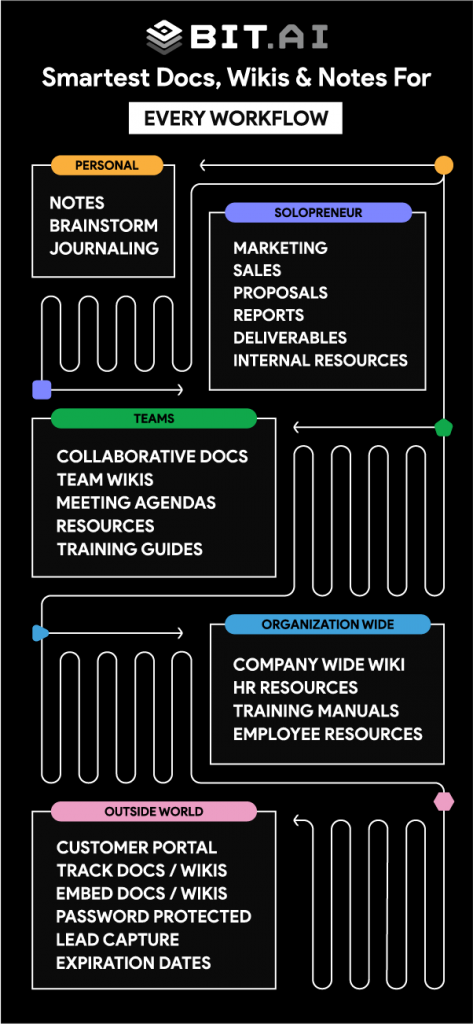Have you ever walked into a fancy restaurant with high expectations and received poor service and a mediocre meal? I sure have, and let me tell you, it’s a disappointment worse than realizing you left your phone at home while waiting at the doctor’s office.
That’s where the importance of customer success comes into light. Happy customers not only return, but they also spread the word about their positive experience, attracting even more customers.
In today’s fast-paced world, where there are countless options for everything from restaurants to software, customer success can make or break a company.
Mango ones that prioritize their customers’ needs and deliver exceptional service are the ones that thrive. So, let’s raise a glass to customer success, the unsung hero that keeps businesses running smoothly and customers coming back for more.
What is Customer Success?
Imagine you’re on a mission to find the perfect pair of shoes but feeling overwhelmed and indecisive. Suddenly, a friendly sales associate appears, armed with extensive product knowledge and a contagious enthusiasm for footwear. They listen to your needs, offer suggestions, and celebrate when you finally find the one you were looking for.
That’s the essence of customer success- going above and beyond to ensure customers achieve their desired outcomes. It’s not just about selling a product or a service but building relationships and delivering value.
Customer success is the proactive approach of understanding customer needs, engaging with them regularly, and ensuring they get the most out of their investment. It’s the art of making customers happy and successful.
In a nutshell, customer success is the foundation of any successful business. It’s about putting the customer at the center of everything you do and working tirelessly to help them achieve their goals. Because when your customers succeed, you succeed.
So now that you have a good understanding of what customer success is, I know what you may be wondering, why does it even matter? Hold on to that curiosity because, in the next paragraph, we will explore the crucial role that customer success plays in ensuring the growth and success of a business.
Why Does Customer Success Matter?
One day, I walked into a store, excited to buy a new gadget I had been eyeing for months. But the sales representative who helped me seemed more interested in scrolling through their phone than assisting me. After finally making my purchase, I left feeling unimportant and frustrated.
Now, imagine if that had been the experience of every customer who walked into that store. It wouldn’t be long before that store would be out of business.
This example itself hints at the relevance of customer success. Besides ensuring the customer gets what they ordered; customer success is also about making them feel valued and respected. When a business prioritizes customer success, they create loyal customers who will keep returning and recommend the business to others.
But it’s not just about retaining customers; it’s also about attracting new ones. With the rise of social media and online reviews, one bad experience can spread like wildfire and damage a business’s reputation. That’s why customer success is essential in today’s competitive market.
In short, customer success matters because it’s the key to creating a loyal customer base, attracting new customers, and maintaining a positive reputation in the marketplace. But, have you ever wondered why exactly businesses need customer success?
Stay tuned for the next section to uncover the crucial reasons why customer success is a non-negotiable element for every business to thrive and succeed in today’s competitive market.
Why Do Businesses Need Customer Success?
Do you know what’s worse than not having customers? Having unhappy customers. And do you know what’s even worse than that? Having unhappy customers who leave bad reviews and tell all their friends to stay away from your business like it’s a cursed, haunted house. That’s when Customer Success gets important for business.
The facts suggest that acquiring a new customer can cost five times more than retaining an existing one. Or that increasing customer retention rates by just 5% increase profits by 25-95%? These numbers are enough to highlight that customer success is not just a nice-to-have for businesses; it is a necessity. So, let’s dive in and see why every business needs a Customer Success strategy:
1. Customer Retention and Loyalty
By focusing on customer success, businesses can ensure that their customers are satisfied with their products or services and feel valued and supported throughout their journey.
This leads to increased customer loyalty and a higher likelihood of repeat purchases and positive word-of-mouth referrals. As the research says, loyal customers are five times more likely to buy again and four times more likely to refer the brand to family and friends.
2. Increased Revenue

A successful CS strategy can lead to increased revenue for a business. Happy customers are more likely to spend more money with a company and are also more likely to become advocates for the brand. You’ll be shocked that 86% of customers are willing to pay more for a better customer experience. So why not improve the customer experience and amplify your revenue?
3. Differentiation from Competitors
Providing an exceptional customer experience can set a business apart in today’s competitive market. Customers are more likely to choose a brand that prioritizes their success and satisfaction over one that does not. According to a survey by Deloitte, two-thirds of a company’s competitive edge comes from its customer experience.
4. Feedback
CS can help you identify areas for improvement within your business. By gathering customer feedback and tracking metrics like customer retention, satisfaction, and referral rates, you can pinpoint areas that need attention and make strategic changes to improve your overall customer experience.
Alright then, we’ve established that customer success is crucial for businesses to thrive, but let’s clear up a common misconception: it’s not the same thing as customer service. Don’t worry; we’ll clarify this in the next section. So read on.
Customer Success vs. Customer Service
Many people confuse customer service with customer success, but the two are quite different. Customer service is reactive – it responds to customer issues as they arise. On the other hand, customer success is proactive – it aims to anticipate customer needs and address them before they arise.
Imagine you’re at a restaurant. The waiter brings you a delicious meal but then disappears and doesn’t come back to check on you. That’s good customer service – the waiter delivered what you ordered – but it’s not customer success. Customer success would be if the waiter returned several times to check on you, refill your drink, and ensure you had a great experience.
To summarize, customer success is about building trust and customer relationships and ensuring customers achieve their desired outcomes. It’s about the willingness to go the extra mile to provide value and make the customer feel heard, understood, and appreciated. So, the next time you encounter a helpful barista or customer service representative, ask yourself – are they just providing service, or are they striving for your success? You’ll get your answer.
It seems we’re not just confusing customer success with customer service, but customer experience has also hopped onto the confusion train! But fear not because, in the next section, we’ll put on our detective hats and solve this mystery once and for all.
Read More: Service Proposal: What is it & How to Create it?
Customer Success vs. Customer Experience
When building a loyal customer base, two terms often thrown around are “customer success” and “customer experience”. It’s easy to confuse the two terms, but understanding the difference is essential for businesses to provide a holistic and effective customer experience.
Customer experience is all about how a customer feels while interacting with a business, from the first touchpoint to the last. It encompasses all aspects of the customer journey, from the ease of finding information on a website to the level of customer service received during a purchase. A great customer experience can increase customer satisfaction, loyalty, and positive word-of-mouth referrals.
On the other hand, customer success is focused on ensuring that customers achieve their desired outcomes from using a product or service. It involves proactively guiding customers toward their goals, providing ongoing support, and measuring their success. Customer success builds long-term customer relationships by helping them achieve their objectives, resulting in retention and upsell opportunities.
By prioritizing customer success and customer experience, businesses can build strong relationships with their customers and create a loyal fan base that will keep returning for more.
By now, you must have a good idea about customer success and its importance for businesses. Now, we’ll delve further into the nuts and bolts of how customer success works, exploring the key steps and strategies businesses can use to drive success for their customers and their business.
How Does Customer Success Work?
Here are some key components of how a customer success strategy works:
1. Understanding The Customer’s Goals
Customer success starts with a deep understanding of the customer’s goals and objectives. This requires ongoing communication and collaboration between the customer success team and the customer to ensure everyone is on the same page.
Like, if a software company’s customer wants to improve their website’s user experience, the customer success team might work with them to create a plan that includes website redesign, A/B testing, and user feedback analysis.
2. Providing Proactive Guidance

Once the customer’s goals are understood, the customer success team can provide proactive guidance and support to help them achieve their objectives. This might involve providing training, creating resources, or offering expert advice.
And as you guide your customers towards success, don’t forget to measure the impact of your efforts – after all, what gets measured gets managed! So, watch for our next discussion on measuring success and discover the power of data-driven decision-making in CS.
3. Measuring Success
Measuring progress toward the customer’s goals is the ultimate aim of a customer success strategy. This requires tracking key metrics and analyzing data to determine the effectiveness of the implemented strategies.
For example, if a customer is trying to increase their social media engagement, the customer success team might track metrics such as likes, shares, and comments on their posts to determine if the implemented strategy is working.
4. Building Strong Relationships
Customer success is more than just achieving short-term goals; it’s about building strong, long-term customer relationships. This requires ongoing communication, support, and engagement to ensure that customers continue to see value in the product or service.
To achieve this, the CS team might host webinars, Q&A sessions, and user groups to keep their customers engaged and informed about new product updates and industry trends.
Well, that’s all about how this all works, but wait! Are you curious about the practical implementation of this philosophy in the real world? If yes, then your wait is over, as our next topic is all about the responsibilities that make up a customer success team. Join me as we’ll highlight the essential tasks that keep clients happy and businesses thriving.
Responsibilities of A Customer Success Team
A customer success team plays a vital role in ensuring customers achieve their desired outcomes from using a product or service. Here, we’ll explore the key responsibilities of a CS team and how they can drive customer satisfaction and retention.
1. Onboarding

It is responsible for helping new customers get up and running with the product or service. This includes providing training, creating documentation, and guiding customers through setup.
A customer success team at a software company may provide personalized onboarding sessions to new users, walk them through the key features, and ensure that they are comfortable with the product.
Read More: Top 9 Customer Onboarding Software Platforms For Businesses!
2. Customer Advocacy
The team should advocate for the customer within the organization, ensuring that their needs and concerns are addressed. They must establish regular customer touchpoints, understand their goals and objectives, and provide ongoing support. Like, if a customer experiences an issue with a product or service, the customer success team should work closely with the product team to resolve the issue as quickly as possible.
Now as we complete our discussion on two of the major roles of a customer success team, let’s take a moment to shift our focus towards the metrics and renewal being equally important for a customer success team.
3. Metrics and Reporting
Tracking and reporting on key metrics such as customer satisfaction, retention rates, and upsell opportunities is one of the most crucial aspects of being a customer success team. This data can help the team identify areas where they can improve their efforts and drive growth for the business.
4. Renewals and Upsells
One of the primary goals of a team is to drive customer retention and expansion. This includes working closely with customers to renew contracts and identify upsell opportunities. For example, a customer success team may work with customers to understand their business needs and identify additional features or services that could help them achieve their objectives.
In short, the CS team is the glue that holds everything together. They’re the ones who make sure that customers are happy, satisfied, and, most importantly, not screaming their heads off. They’re like the mom of the business world, always there to ensure everything is running smoothly. Without a team, a business would be about as successful as a fish trying to climb a tree.
So, if you’re a business owner, treat your CS teams like the rockstars they are. Give them a high five or buy them a cup of coffee. Trust me; they deserve it.
Conclusion
As you wrap up this journey of exploring customer success, you must have a clear idea about the role of customer success in a business. But let’s be real it is not an easy feat. It’s a critical business component and requires much hard work and dedication. But with the right tools, the right attitude, and a whole lot of patience, success is just around the corner.
And speaking of tools to help with customer success teams, let’s not forget Bit.ai. Customer success teams can use this powerful collaboration platform to share information, collaborate on projects, and provide top-notch support to customers. With Bit.ai, customer success teams can work together seamlessly, creating training materials, FAQs, and other resources to help provide a consistent, high-quality customer experience.
For example, a business could create a comprehensive knowledge base using bit.ai, including tutorials, how-to guides, and troubleshooting tips. This knowledge base could be easily shared with customers through a self-service portal, reducing the need for direct customer support and allowing the CS team to focus on high-touch interactions.
Also, bit.ai’s analytics features can help businesses track customer engagement with their content, allowing them to identify areas where they may need to improve their CS efforts. By leveraging bit.ai’s platform, businesses can streamline their efforts, and who knows, it might just be the missing piece of the puzzle you’ve been searching for. So go on and liberate your inner customer success champion!
Further Reads:
Customer Marketing: Definition, Benefits & Strategies!
Accelerating Your Business Success: Mastering Sales Velocity
Customer Segmentation: Definition, Importance, Types & Process
21 Rock-Solid Ways to Improve Customer Focus in Your Business!

Related posts
Bit.ai | Watch to Learn More
What is Bit.ai?
Bit.ai is an innovative AI-driven knowledge and Document Managment suite designed to empower knowledge workers by streamlining the creation of, documents, wikis, and notes. With an intuitive interface and seamless integration, Bit.ai acts as a versatile assistant to help you collaborate, generate, organize, and visualize your ideas effortlessly. Whether you are drafting a report, managing a project, collaborating with your team or clients, or brainstorming new concepts, Bit.ai brings intelligence and creativity to every aspect of your work process.


